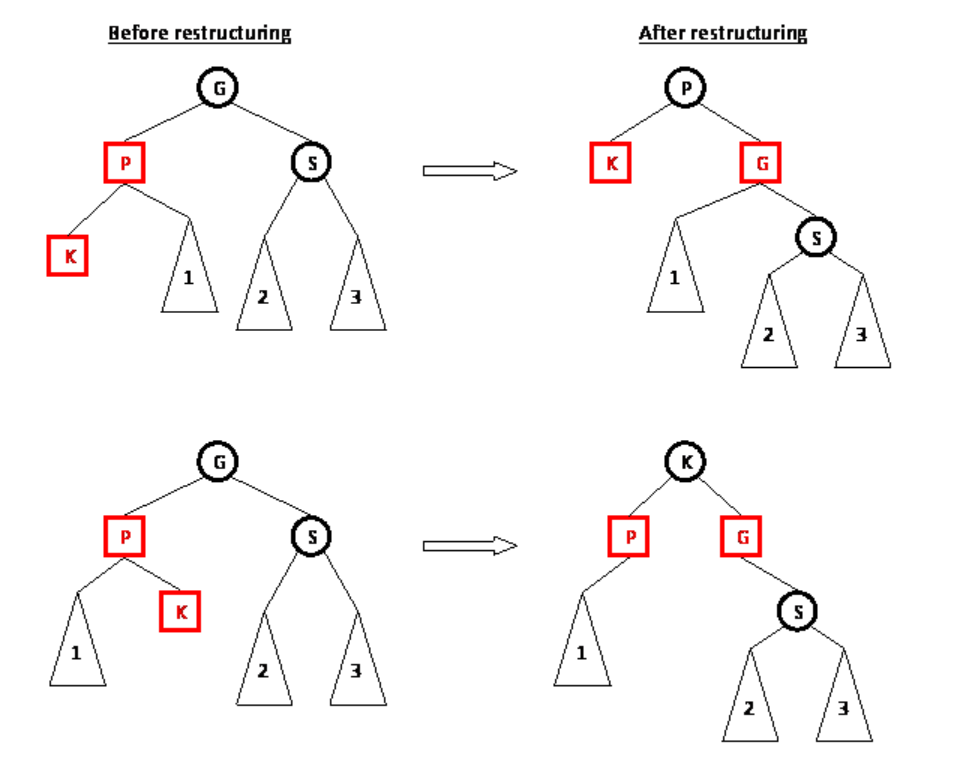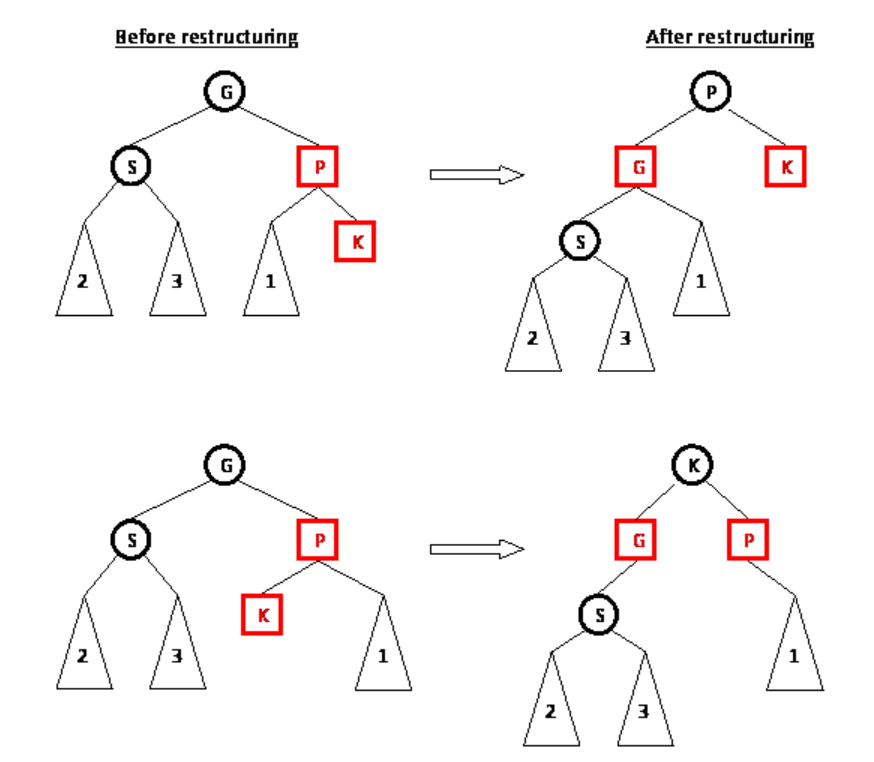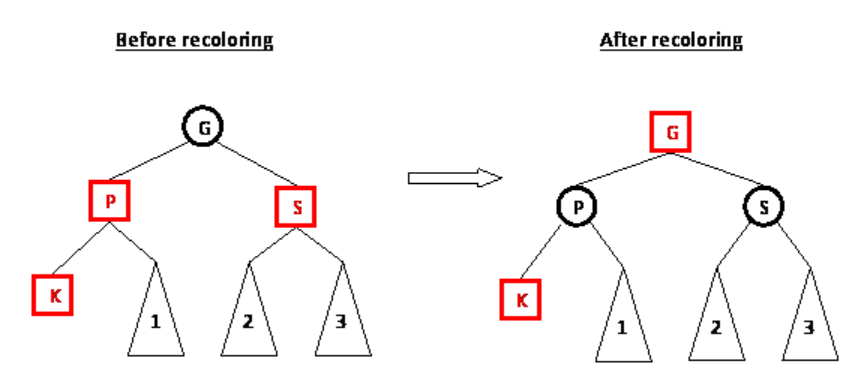数据结构
红黑树
RULE
- Every node is either black or red.
- The root is black
- All leaves(NIL/null nodes) are black.
- Red node rule : If a node is red ,both its children and parents are black.(no two red in a row)
- Black height rule: Every path from a node to its descendant NIL node contains the same number of black nodes.
Construction (Insertion)
-
Case 1: Parent node is BLACK, go ahead.
-
Case 2: RED parent,See your uncle:
-
Case 2.1 :BLACK uncle , Rotation to make things in balance.


-
Case 2.2 :RED uncle, BLACK-lize your parent and uncle,RED-lize your grand.
Now consider the process of your grand and repeat cases above.

-
B树
RULES
Key properties of a B-Tree of order $m$:
- Every node can have at most m children
- Every node (except root )has at least $\lceil \frac{m}{2}\rceil$ children
- Every non-leaf node with $k$ children has exactly $k-1$ keys
- Keys in each node are sorted
- All leaves appear on the same level
推理过程
- 左式:对于一个m阶的具有n个关键字的B树,其第二层至少有2个结点,第三层至少有$2\lceil\frac{m}{2}\rceil$个结点,以此类推,第$h+1$层至少有$2\lceil\frac{m}{2}\rceil^{h-1}$,这一层为查找失败的叶节点,结点数为$n+1$,因此有
化简得左式
- 右式:对于一个m阶的具有n个关键字的B树,其满足不等式 $$ n\leq (m-1)(1+m+\cdots+m^{h-1})=m^h-1 $$ 化简得右式
Construction(Insertion)
-
Find the correct leaf Use the same logic as binary search but in multi-key nodes:
- Compare the new key to the existing keys in the current node.
- Descend into the correct child pointer until you reach a leaf.
-
Insert key in sorted order in that leaf.
-
If the node has ≤ m − 1 keys after insertion → done.
-
If the node overflows (has m keys):
- Split the node into two nodes:
- Middle key moves up to the parent.
- Left half of keys go to the left child.
- Right half of keys go to the right child.
- If the parent also overflows, split it recursively.
- Split the node into two nodes:
-
If the root splits:
- Create a new root containing the middle key.
- The height of the B-Tree increases by 1.
Deletion
- If the key is in a leaf → just remove it.
- If the key is in an internal node:
- Replace it with the predecessor (largest in left subtree) or successor (smallest in right subtree).
- Then delete that replacement key from the leaf.
- If a node falls below ⌈m/2⌉ − 1 keys:
- Borrow a key from a sibling if possible.
- Otherwise, merge with a sibling.
- If the root becomes empty → its only child becomes the new root.